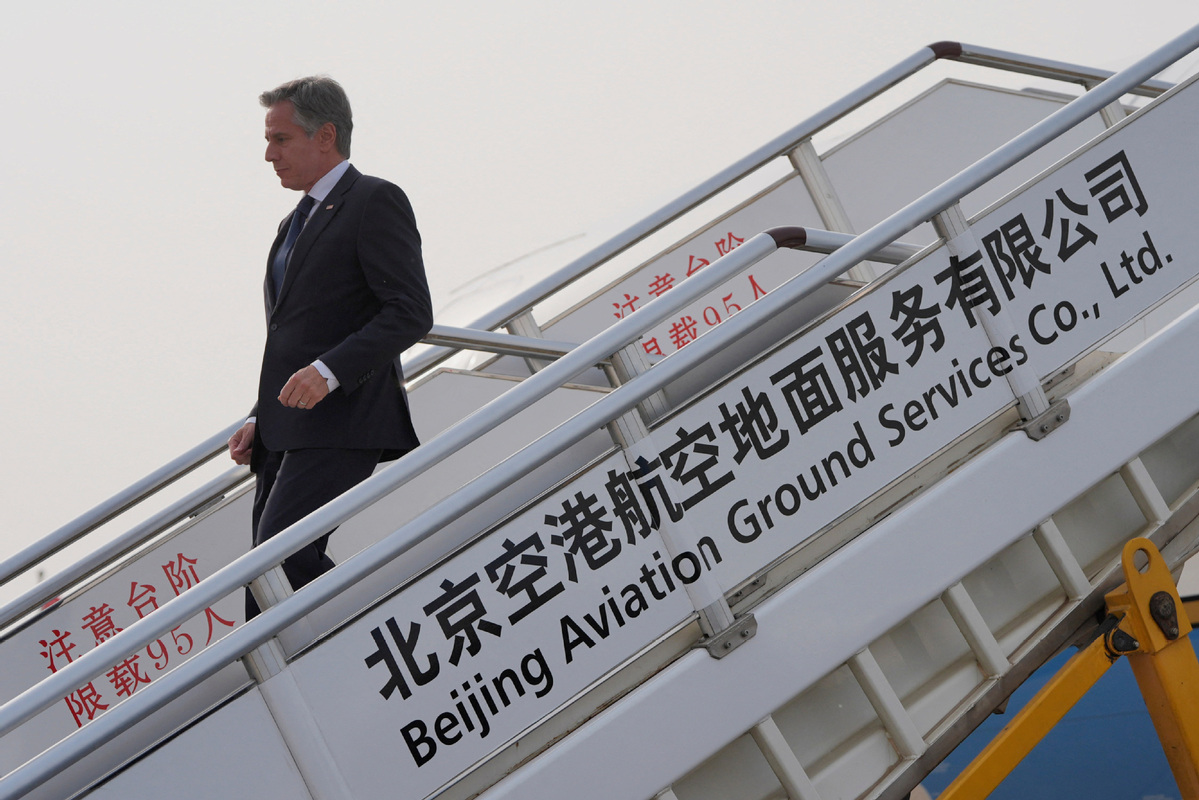Low-key welcome shows what's expected: China Daily editorial


The Chinese side's nonchalant attitude to the Shanghai leg of US Secretary of State Antony Blinken's three-day visit to China, which is about culture, education and business, poses a sharp contrast with the positive attitude it showed toward that part of US Treasury Secretary Janet Yellen's visit from April 6 to 9.
That is a manifestation of Beijing's dissatisfaction with what the US side has done to improve ties since the two heads of state agreed on the importance and urgency of repairing bilateral relations in their talks via telephone on April 2.
Reinforcing the discrepancy between the words and deeds of the US, the US House of Representatives passed two bills on Saturday providing weapons worth billions of dollars to China's Taiwan island, and banning TikTok, with the latter bill passing the Senate on Wednesday.
Besides, the largest US-Philippine joint military drill in decades was launched on Monday in waters close to Taiwan in the South China Sea. And days before that the US installed middle-range missiles in the north of the Philippines' Luzon island covering not only Taiwan and its surrounding waters, but also the whole southeast coastal region of the Chinese mainland.
If that's not enough, the US side has recently begun scaremongering about China's "overcapacity", and it has threatened to triple its already punitive tariffs on Chinese steel and aluminum products, and ban Chinese electric vehicles and solar panels.
It has also hyped up its fabrication that Beijing has chosen Moscow over the West.
That is why, on Tuesday, in a rare move before the senior foreign official's visit, Beijing issued a release that technically served to remind the visiting top US diplomat of five priorities for stable relations: seeing bilateral ties correctly, strengthening dialogue, managing risks responsibly, promoting cooperation and shouldering the responsibilities of a major country.
That's a typical Chinese diplomatic approach signaling Beijing's discontent with the US side doing exactly the opposite of what it said it would do on April 2.
The points Beijing has laid out for Blinken are the five pillars of the San Francisco Vision that was an outcome of the common understanding reached between the Chinese and US leaders at their summit in November. That was hatched from the principles of the United Nations-centered international relations, reflecting the Chinese side's long-term commitment to promote Sino-US relations on an equal footing, with mutual respect and through win-win cooperation.
However, what the US has done shows the Joe Biden administration has only intensified its endeavors to define and steer bilateral ties "from a position of strength". That was something that the Chinese side firmly rejected during the first face-to-face meeting between senior officials of China and those of the Biden administration in Anchorage, Alaska, in March 2021.
In the face of the Biden administration not honoring its words with deeds, China deserves credit for the strategic composure it has shown and restraint it has exercised. Despite the US' continuous attempts to bully, coerce and provoke, which the US side disguises under the cover of competition, cooperation and confrontation, Beijing has held fast to the belief that cooperation is both possible and the key to friendly relations.
Although, as some Western media noted, no red carpet was rolled out for Blinken at the Shanghai airport upon his arrival, the top US diplomat should be well aware that as well as the redlines his hosts have demarcated, they still view the visit as an opportunity to expand common ground so long as those redlines are respected.

































